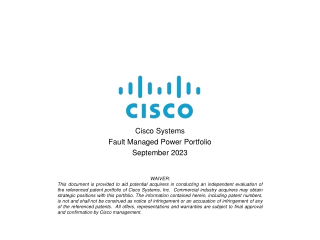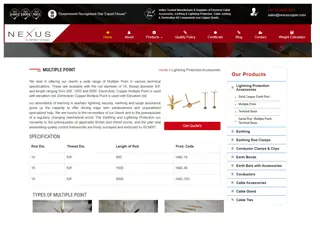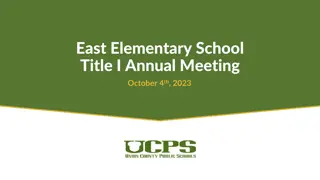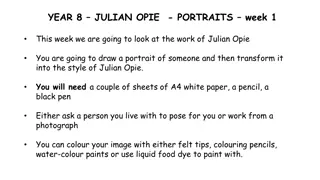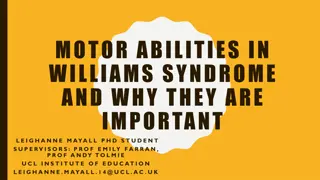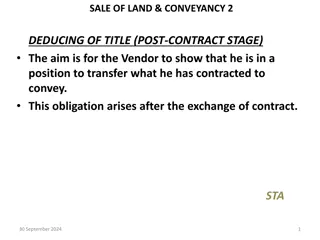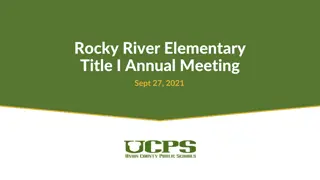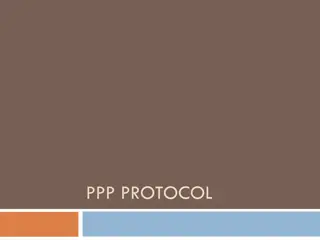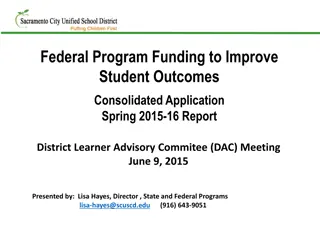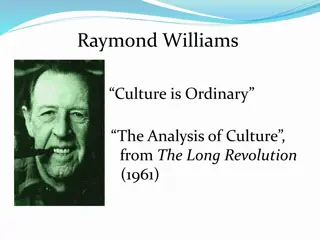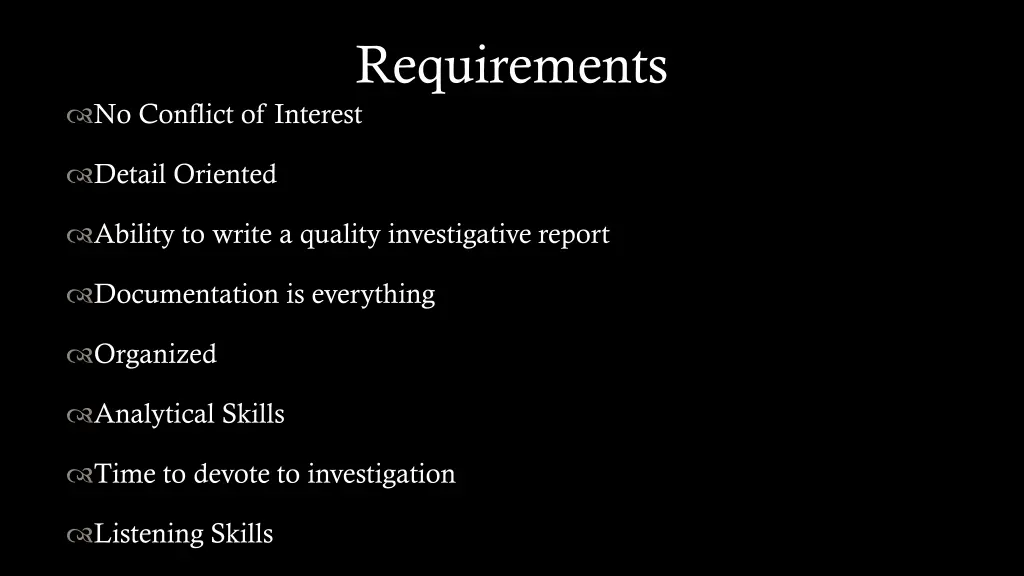
Effective Investigative Practices in Higher Education
Dive into the essential requirements and training for investigators in higher education settings, including the need for objectivity, conflict management, and knowledge of relevant laws. Explore the distinctions between private vs. public, criminal vs. institutional investigations, and the intersection of Title IX, Clery Act, and FERPA regulations. Gain insights into best practices for addressing sensitive issues like sexual harassment and violence on campuses.
Download Presentation

Please find below an Image/Link to download the presentation.
The content on the website is provided AS IS for your information and personal use only. It may not be sold, licensed, or shared on other websites without obtaining consent from the author. If you encounter any issues during the download, it is possible that the publisher has removed the file from their server.
You are allowed to download the files provided on this website for personal or commercial use, subject to the condition that they are used lawfully. All files are the property of their respective owners.
The content on the website is provided AS IS for your information and personal use only. It may not be sold, licensed, or shared on other websites without obtaining consent from the author.
E N D
Presentation Transcript
Requirements No Conflict of Interest Detail Oriented Ability to write a quality investigative report Documentation is everything Organized Analytical Skills Time to devote to investigation Listening Skills
Requirements (contd) Comfortable with Subject Matter Ability to separate from personal bias Able to apply policies and think critically Comfortable with Conflict Ability to build rapport Collaborative Understanding of a variety of higher education laws and policies (FERPA, Clery, Disability law, etc.) Ability to remain objective and neutral
Training for Investigators Ongoing and Continuous Trauma Informed
Private vs. Public Contractual vs. Constitutional
Criminal vs. Institutional Campuses are NOT required to report alleged incidents to law enforcement but are required to provide complainants with information about reporting options and MUST respect and support a Complainant s desire to report to law enforcement Campuses CANNOT delay their investigations while Criminal Proceedings are pending Memorandum Of Understanding
Title IX vs. Clery/Violence Against Women Act Reauthorization Dating Violence, Domestic Violence, Stalking, Gender Identity as Hate Crime Category Equal Right to Have Advisor of Choosing Present Written Notification of Rights and Grievance Procedures Training Requirements CSAs Timely Warnings Accommodations CLERY TITLE IX Sexual Harassment, Including Sexual Violence Incidents Outside of Clery Geography Responsible Employees Interim Measures
Title IX v. FERPA Title IX requires a notice of outcome including the following: Finding of responsibility or lack of responsibility Individual remedies offered or provided to the complainant Sanctions that directly related to the Complainant Steps taken by the University to eliminate hostile environment and prevent recurrence DOE interprets FERPA as NOT conflicting with Title IX 2001 Guidance- FERPA permits a school to disclose to sanctions directly related to the Complainant 34 C.F.R. 99.31(a)(13). For purposes of 34 C.F.R. 99.31(a)(13)-(14), disclosure of final results is limited to the name of the alleged perpetrator, any violation found to have been committed, and any sanction imposed against the perpetrator by the school. 34 C.F.R. 99.39.
Title IX &VAWA VAWA Regulations--668.46(k Simultaneous written notice to the parties of: Outcome, including if sexual misconduct found Results of any disciplinary proceeding Rationale for result Any change to result of disciplinary proceeding When are results final? Institution s response Appeal procedures


